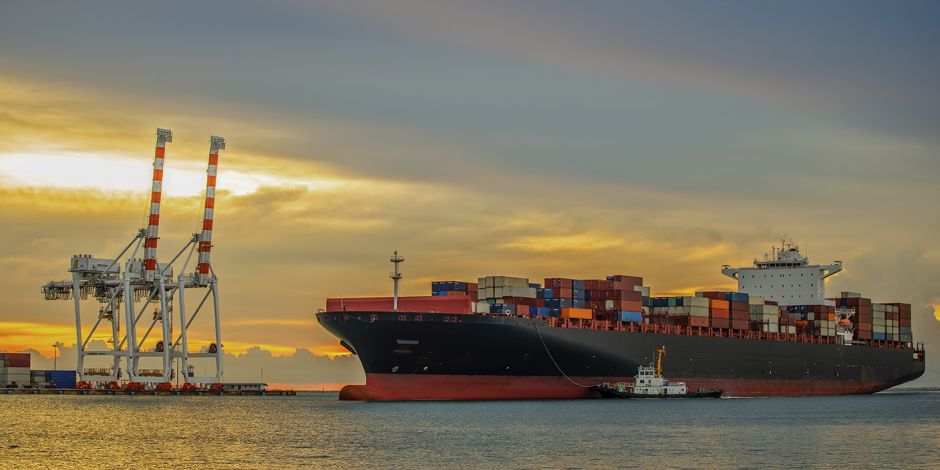IMO sets 2020 as date for 0.5 % global sulphur cap

The International Maritime Organization (IMO) has decided that shipping by the year 2020 shall reduce the proportion of sulphur content in marine fuel from the current 3.5 percent to 0.5%. The decision is seen as a success that will reduce shipping emissions.
This week, the International Maritime Organization IMO's Marine Environment Protection Committee (MEPC) environmental committee MEPC 70 meeting. The decision on the sulphur content in marine fuels is a main issue of the meeting and the debate has been whether the sulphur cap would enter into force in 2020 or 2025. The earlier date is applauded by many.
- This decision reduces the contribution of shipping to the world’s air pollution impact from about 5 percent down to 1.5 percent and will save millions of lives in the coming decades, Bill Hemmings of campaigner Transport & Environment said to Reuters.
Prior to MEPC 70 Lighthouse met with international shipowner organisation ICS Chairman Esben Poulson.
- ICS does not take a stance, when it (the sulphur cap) should be, all we say is, please just tell us when, and we will work accordingly. If it is 2020 we hope to sit down with IMO and the industry, oil industry, suppliers, and work towards the timeframe, Esben Poulson says.
The aim of reducing the sulphur content of shipping fuels is to reduce emissions of sulphur dioxide formed when the fuel is burned. Emissions of sulphur dioxide affect human health and the combustion leads to acidification. Europe has gone much further regarding sulphur content and the Baltic Sea, North Sea and English Channel represents a Sulphur Emission Control Area (SECA) where ships since 2015, have to use marine fuels with a sulphur content less than 0,1 %m/m. Also the North Americann coast and the US Caribbean has emission control areas that apply to both sulphur (SECA) and nitrogen (NECA).
- The decision from IMO to enforce a ceiling on emissions of sulphur from ships, regardless of their flag or their geographical location on the planet, is something we are very happy about. It contributes to make shipping an even more sustainable industry than it already is, says Fredrik Larsson, Environmental Manager at Swedish Shipowners' Associsation who were at the IMO when the decision was taken.
The regulations require ship owners to make a fuel shift and use low-sulphur marine fuel oils, use alternative fuels such as LNG (liquefied natural gas) or use scrubbers on-board their ships, to meet the requirements. However, it is not obvious that a reduced amount of sulphur will reduce particulate emissions in the air. When SECA was introduced, the main reason was to reduce the amount of sulphur oxides from ship operations, but there were also assumptions that particle emissions would be reduced by lower sulphur content in marine fuel oils.
Research from Chalmers Department of Shipping and Marine Technology states that fuel sulphur content regulation is a step in the right direction towards reduced particle emissions, if alternative fuels, such as LNG, or marine fuels, more similar to distillates, are used.
Text: Andreas Kron
Related content:
-
 NextWave – en podd som ska locka unga
NextWave – en podd som ska locka unga -
 Ny studie: Eldrivna pendelbåtar kan effektivisera Stockholms kollektivtrafik
Ny studie: Eldrivna pendelbåtar kan effektivisera Stockholms kollektivtrafik -
 Sjöfartens utsläpp ökar
Sjöfartens utsläpp ökar -
 Sociala relationer påverkar val av bränsle
Sociala relationer påverkar val av bränsle -
 Sjöfartens omställning kräver ”mjukare” påtryckningar
Sjöfartens omställning kräver ”mjukare” påtryckningar -
 Hon hade avtalad tid med Kapten ynkrygg
Hon hade avtalad tid med Kapten ynkrygg -
 Lighthouse omvärldsanalys 2025 – osäkerhet och tullar präglar sjöfarten
Lighthouse omvärldsanalys 2025 – osäkerhet och tullar präglar sjöfarten -
 Se seminariet Shipping in the Marine Environment
Se seminariet Shipping in the Marine Environment -
 Vad betyder egentligen de 90 procenten?
Vad betyder egentligen de 90 procenten? -
 Hålla där...
Hålla där...

